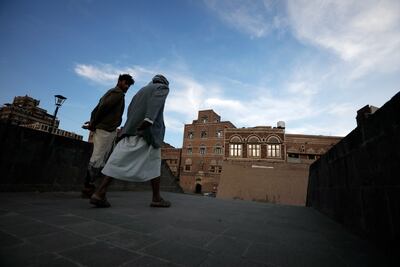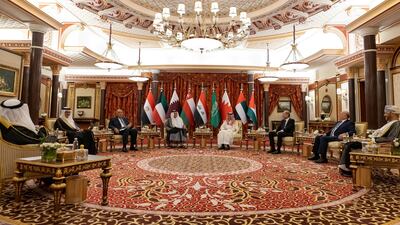Two important summits will be held on Friday. Saudi Arabia will host the Arab League summit amid major restructuring in the Arab, regional and international landscapes under a Saudi leadership determined to chart a different course. On the same day, Japan will host the G7 summit, with the focus set to be on China and Russia, particularly as the war in Ukraine enters a new phase next week.
The Jeddah summit will mark the beginning of the year-long Saudi presidency of the Arab League, with expectations surrounding its leadership’s plans. The opening act is sure to generate much media intrigue, as Syria returns to the League after being suspended for 12 years due to conflict.
The welcome extended to Syrian President Bashar Al Assad and his rehabilitation are conditional, hinging on the implementation of all his promises, which include ending drug trafficking and taking tangible steps towards a new constitution based on UN Security Council resolutions. Additionally, the reconstruction of Syria will be conditional on ensuring the return of Syrians who have been displaced and who have sought refuge in neighbouring countries. The summit will be a test of his commitments, including to disengage in one way or another from Hezbollah's activities.
Time will test Mr Al Assad's intentions, particularly as the Arab initiative to invite the Syrian regime to Jeddah faces some obstacles – such as the risk of contravening US laws. But the aim of the Arab nations is not to circumvent any US laws, but to co-ordinate efforts with Washington.
The Biden administration doesn't seem very upset about the push towards rehabilitating the Assad regime or towards seeking exemptions from the "Caesar Act", for example, which prohibits economic co-operation with the regime. However, Republicans in the US Congress will not remain silent on the matter, especially as the next election cycle draws closer. Nonetheless, they are relenting to give Saudi Arabia the chance to implement a policy of containment towards Iran and Syria through inducement rather than intimidation.

The US is encouraging Saudi Arabia's role in calming tensions and finding solutions to the region’s problems, from Sudan to Lebanon. A Gulf official has described Saudi Arabia as a "reservoir of moderation” that can be used to tackle various issues and conflicts. China is also at ease with this reservoir. However, Riyadh is cautious not to fall into the dynamic of Sino-American competition.
The Saudi vision for presiding over the League is based on the belief that the kingdom is uniquely capable of providing leadership in the region, particularly given the growing instability throughout North Africa. This is important in light of waning American interest in the region and the Russian retreat due to Moscow's preoccupation with the war in Ukraine.
Economic and developmental issues will no doubt be discussed at the summit. But due to the ongoing wars and chaos in the Arab world, the summit cannot ignore these issues.
The Lebanese file, for instance, is expected to be on the agenda, albeit with a cautious approach to support a compromise solution acceptable to Saudi Arabia. Likewise, the Palestinian cause will also be addressed, including a decision to not endorse Hamas or Islamic Jihad in their confrontation with Israel, and to promote moderation and discourage futile actions that harm the Palestinian people and their aspirations.
Iraq remains a crucial issue, as Arab countries are expected to demonstrate their support for Prime Minister Mohammed Shia Al Sudani – and to help solidify his position with a view to weaken Iran’s influence over the country.
Ending the conflict in Sudan is a top priority, with instability posing a threat to the future of the Red Sea region, which is of great importance to the Saudi leadership.
Yemen will also be on the agenda, as the conflict moves towards a possible solution, thanks to the Chinese-brokered Saudi-Iranian agreement and its outcomes. Today, Riyadh is acting as a mediator between the Yemeni factions, and it hopes Tehran will continue to exert pressure on the Houthis to accept a lasting compromise.
Saudi Arabia seeks to take the burden of Yemen off its shoulders to focus on its major projects, vision and regional leadership. The Arab League summit presents a critical opportunity to achieve these ambitions, potentially serving as the launch pad for a new era in the Arab region.

Meanwhile, the Japanese city of Hiroshima will provide the stage for the next G7 summit comprising some of the world’s largest economies – Canada, France, Germany, Italy, Japan, the EU, UK and US. The focus will be on China and Russia (the latter was once a member of a larger G8 club but is now at odds with the West due to the war in Ukraine).
The war is undergoing an important new phase, with the UK delivering long-range missiles capable of striking deep into Russia with a radius of 300 kilometres. This has prompted speculation that Moscow could retaliate with pre-emptive attacks targeting hubs of western weapons deliveries to Ukraine on its border with Poland. While the Biden administration has stipulated conditions for the delivery of long-range missiles to Kyiv – prohibiting their use against Russian territory – the UK has not sought such guarantees.
European countries fundamentally support Ukraine, but there are divisions among them. Some welcome China's role in seeking to end the war and initiate negotiations, while others are hesitant.
The Biden administration is cautious about European acceptance of Chinese proposals, but it is aware of Europe's desire to avoid problems with China while fearing American pressure. The US is preparing to impose its 11th round of sanctions, including, for the first time, sanctions on Chinese companies thought to be supporting Russia, which could create a new crisis. Europe countries find themselves in a dilemma because agreeing to US sanctions could trigger a severe Chinese economic response towards them.
Draft proposals are being prepared to adopt a firm stance towards Beijing. Some reported American formulations propose declaring that China poses a threat to the West, which could escalate the standoff to a new level. Monitoring the Hiroshima summit, therefore, will be of utmost importance.


